Summer is coming! As you plan for a thrilling trip this summer vacation and seek the best deal for everything, scammers are well prepared to exploit you with travel scams. Continue reading for what you should know about travel scams and learn how to avoid them:
How Much Damage Have Travel Scams Caused
- Victims lost 26 million dollars to travel, timeshare, and vacation rental scams from January to March 2021, with a median loss of $1,000. (Federal Trade Commission)
- Action Fraud reported that 56% of holiday fraud cases are related to booking airline tickets, and 29% of them are about holiday accommodation.
Common Travel Scams: BEFORE and AFTER You Hit the Road
When you are planning:
When you start to plan for a wonderful trip, scammers try their best to target on you and find ways to steal your money as well as your personal information.
- Phishing emails from famous booking sites
Received emails from Booking.com that require you to make a phone call or click on a link? Think twice.
Scammers impersonate famous booking sites such as Booking.com and send emails to customers, claiming that there are issues with their orders, and that they have to provide banking details or wire money to resume the booking process. In some cases, the messages even contain genuine information about the order so that many victims have fallen for it.
Here is an example of Booking.com phishing email. The link opens a chat where scammers will ask the user to wire money instead of using credit cards:
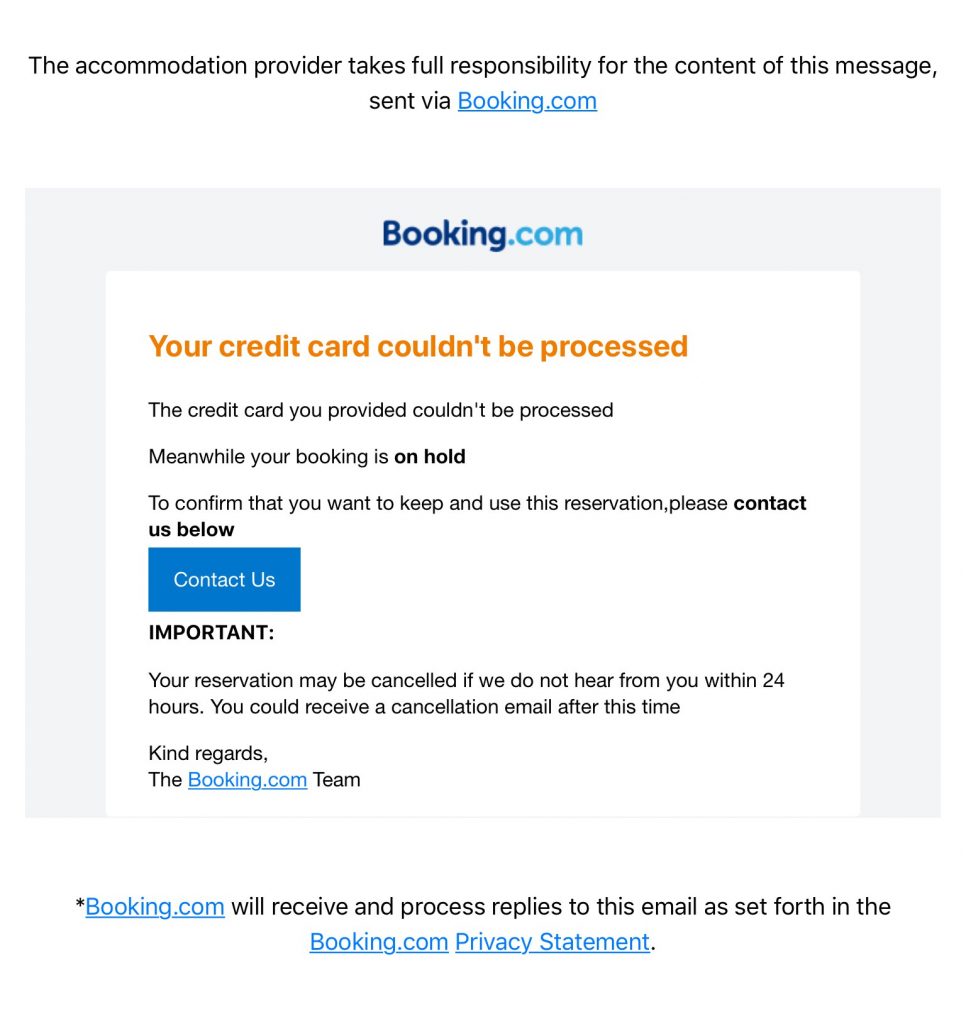
- Fake websites
Are you sure the booking site you visit is reliable? Scammers love to impersonate famous booking sites and create a phishing website, trying to record the login credentials you enter.
For example, here is an example of a fake Airbnb login page: (The actual web address of Airbnb should be https://www.airbnb.com/ instead of airbnb-rooms-7174[.]com.)
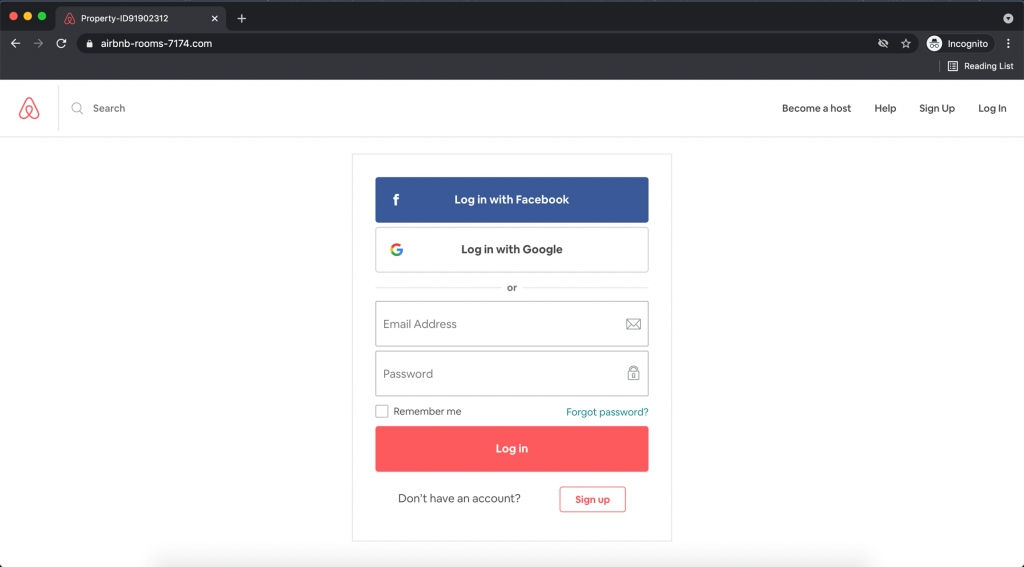
Scammers also create fake websites to convince you that they are legitimate travel agencies or airline ticket booking services. We found two more suspicious websites:

The two websites “Alexander Vacations” and “Sandstone Vacations” look exactly the same except for their names. Besides, the Facebook icon of Alexander Vacations leads to https://www.facebook.com/ but not their official fan page. As for Sandstone, the Facebook icon goes to an empty fan page named Sandstone Vacations.
Plus, the only available contact information is a phone number. There is no email address or other options for customers.

Last but not least, the company claims to have “customer experiences” for more than 20 years, but according to its WHOIS lookup result, the website was registered in February 2021. That’s not even half a year.

We recommend you not to purchase anything on these suspicious websites. There is no guarantee when it comes to refund or other disputes.
- Fake giveaway / lucky draw campaign
Besides bogus websites, scammers also hold fake campaigns on social media to trick you.
We reported Bora Bora giveaway scams on Facebook in which scammers falsely claim that they are doing a lucky draw campaign.
Similar tricks apply to plane ticket giveaway scams. Pretending to be airline companies, such as Air Canada, easyJet, or Ryanair, scammers spread fake giveaway campaigns and claim to be giving away free tickets on Facebook.
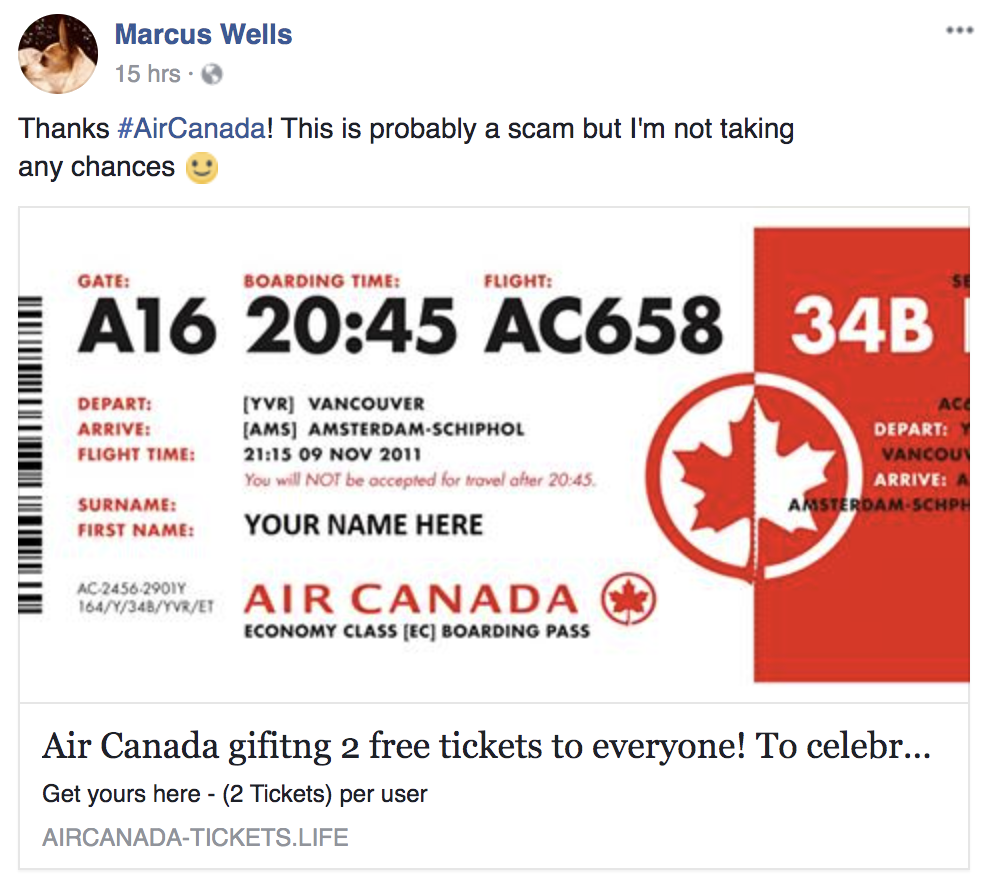
If you take the bait and click on the link in the post, it will lead you to a fake airline website where you have to take a survey.

After that, you are told to enter sensitive data like credit card information or other banking details. Scammers record these credentials and use them to steal your money as well as your identity.
- Vacation club membership scam
If you are considering joining a vacation club, be careful! While legitimate vacation clubs charge members a reasonable price with good services, some bogus ones ask for a lot of upfront fees to join. However, when you use their services, you will find out that there are many restrictions.
When you are traveling:
Even if you successfully avoid all the scams mentioned above, you still have to be careful of these hotel scams when you are on the trip:
- Fake phone calls from the front desk
Scammers might impersonate the front desk and call you, asking you to pay extra fees. They will prompt you to provide credit card information and then steal your money. - Free Wi-Fi scams
Hackers might spoof the legitimate Wi-Fi and create a copy of it. When you connect to it, scammers can record your login data. For more details about how to stay safe when using public Wi-Fi, visit here. - Fake menu scams
Other scammers print out fake flyers of restaurants and put them in front of your hotel room. If you decide to order from them, you will accidentally provide your credit card information to scammers.
5 Red Flags
Here are some red flags in a travel scam to look out for:
- Specific payment methods, such as wiring money, gift cards, or prepaid cards.
- Too-good-to-be-true offers.
- Requests for a high amount of advance fee/upfront fee.
- Lack of details or real customer reviews.
- Pressure you to make a quick decision.
5 Tips to Protect Yourself
- Choose reliable booking platforms. Do your homework and search for reviews and complaints about the travel website/agency through the Better Business Bureau.
- Use legitimate payment methods and trusted paying networks.
- Do not overshare details of your travel plan on social media.
- Be smart with personal information. Consider keeping your information safe from hackers when using public Wi-Fi with Trend Micro™ VPN Proxy One Pro
- Check if links are safe using Trend Micro Check:
Send a link or a screenshot of suspicious text messages to Trend Micro Check on WhatsApp for immediate scam detection:
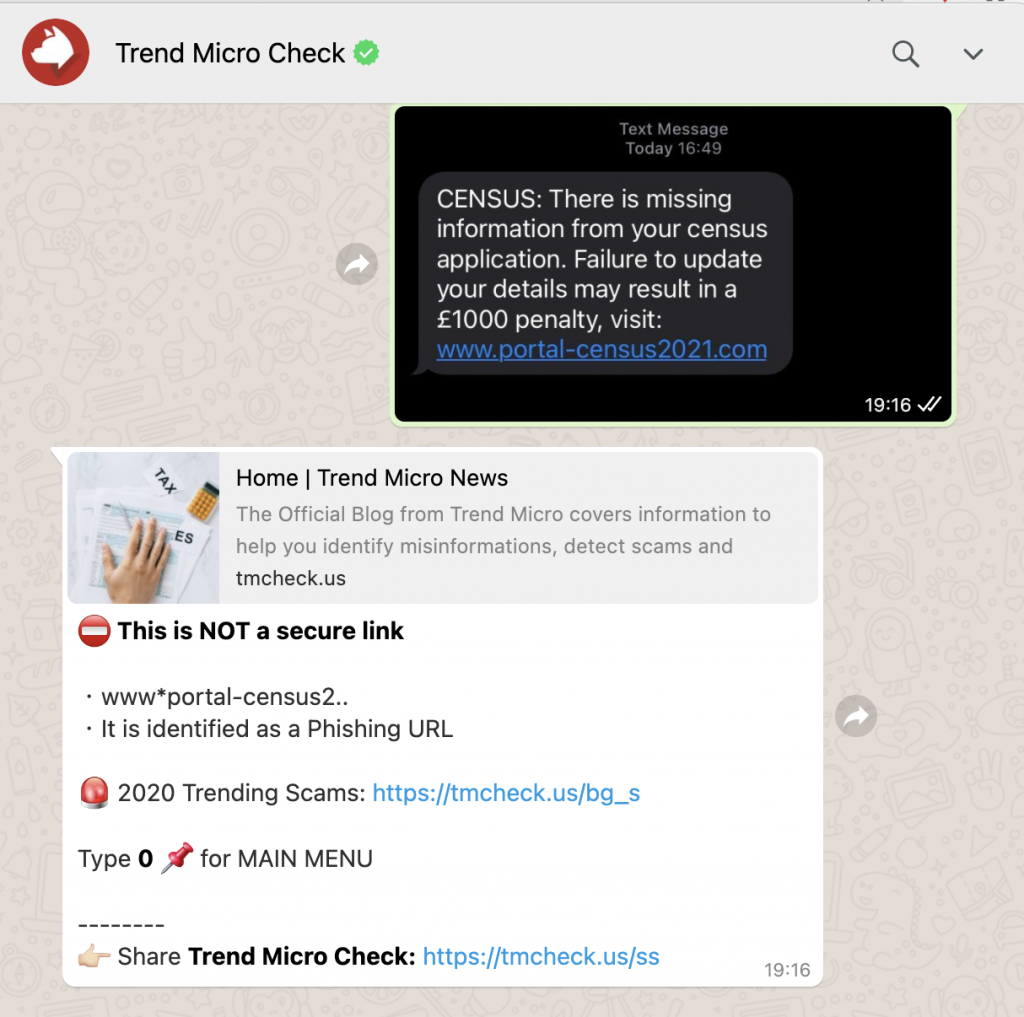
Trend Micro Check is also available as a Chrome extension.
It will block dangerous sites for you automatically:
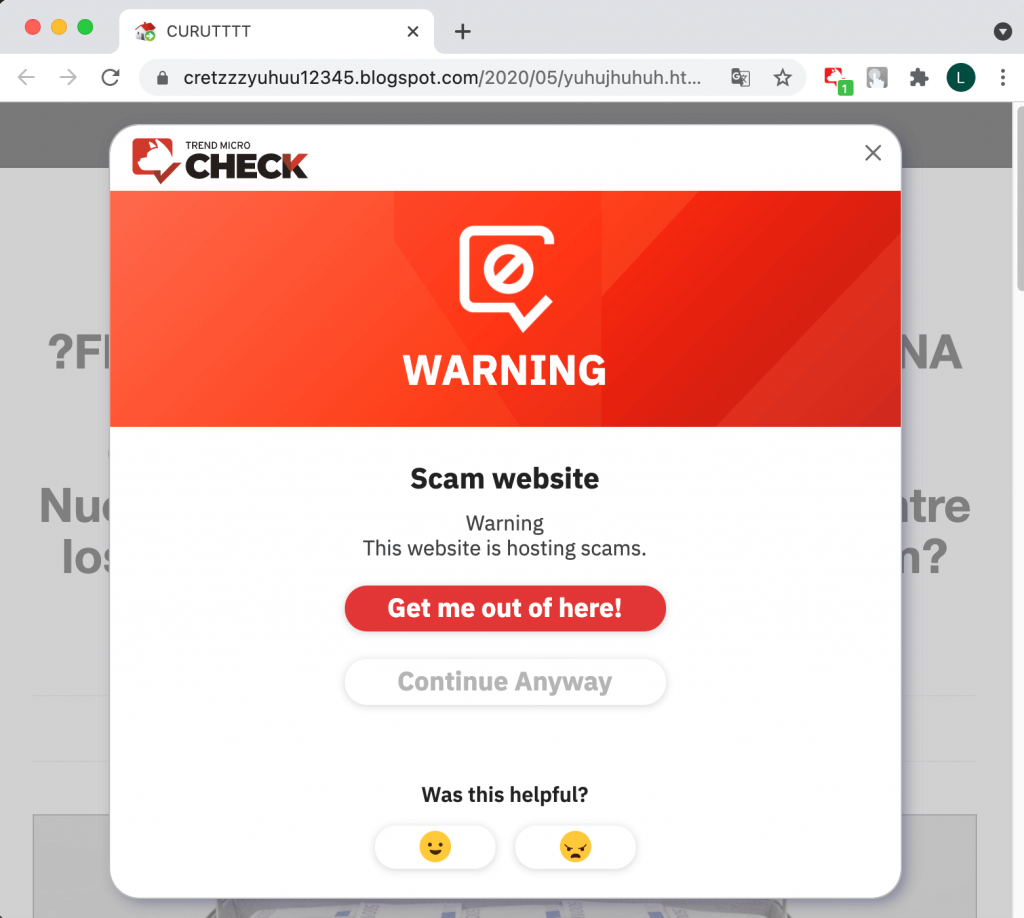
Download Trend Micro Maximum Security for even more protection, including Web Threat Protection, Ransomware Protection, Anti-phishing, and Anti-spam Protection. Click the button below to give it a try:
Last, if you suspect a travel scam, please report to the FTC or BBB.
Stay safe and enjoy your trip. Don’t let scammers ruin the fun!
Follow Trend Micro Home on Facebook/Twitter/Instagram for more trending anti-scam tips and other useful insights as well.
If you find this article helpful, please SHARE to protect your family and friends!
1 Comments
- By GRAMITH JOSEPH | October 7, 2023
